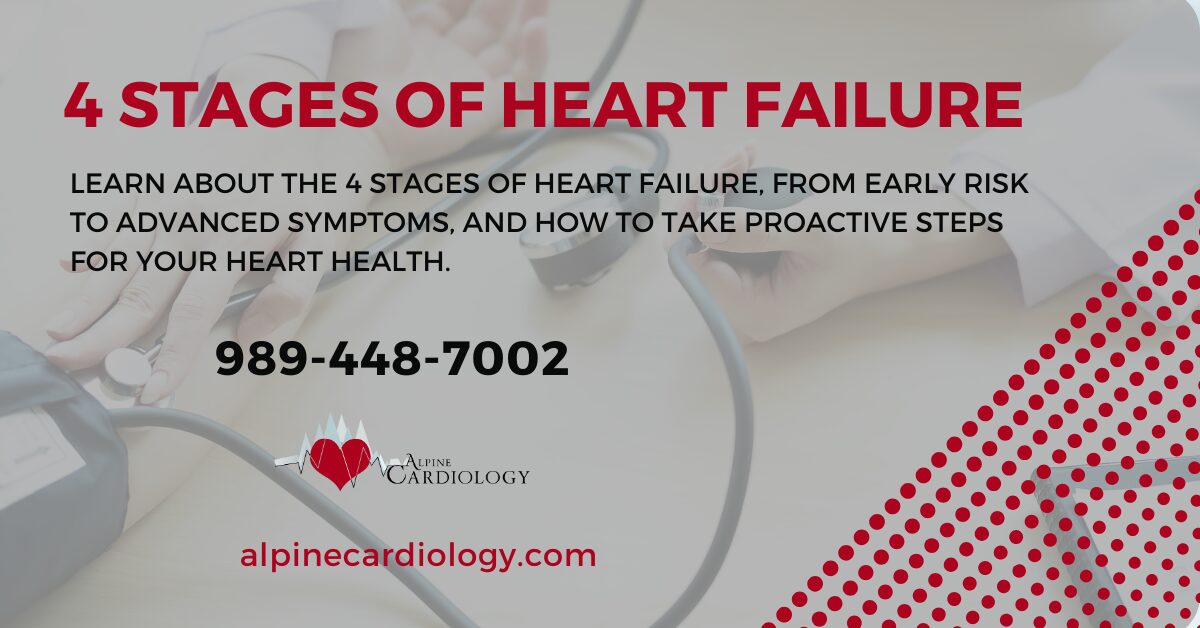How to Take Action Early
When you hear the term heart failure, it can sound alarming. But it’s important to know that heart failure doesn’t mean your heart has stopped working—it means your heart isn’t working as efficiently as it should. And here’s the good news: heart failure is a condition that can be managed, especially when caught early. Understanding the 4 stages of heart failure is the first step in protecting your heart and your health.
What Is Heart Failure?
Heart failure, also known as congestive heart failure (CHF), occurs when the heart can’t pump enough blood to meet the body’s needs. It’s usually the result of underlying conditions like coronary artery disease, diabetes, high blood pressure, or previous heart attacks. Other causes may include heart valve problems, cardiomyopathy, or an unhealthy lifestyle.
Heart failure develops in stages, from being at risk to having severe symptoms. Let’s break down what each stage means and how to take action at every step.
Stage A: At Risk for Heart Failure
At this stage, there are no structural heart changes and no symptoms—but your risk is elevated. Common risk factors include:
- High blood pressure
- Diabetes
- High cholesterol
- Obesity
- Family history of heart disease
- Sedentary lifestyle or poor diet
- Smoking or excessive alcohol use
What you can do:
Focus on prevention. Lifestyle changes like eating a heart-healthy diet, exercising regularly, quitting smoking, and managing underlying conditions can significantly reduce your risk.
Stage B: Early Heart Changes, No Symptoms
In Stage B, your heart may start to show structural changes—visible on tests like an echocardiogram—even though you still don’t have any symptoms. This might happen if you’ve had a heart attack or have damage to the heart muscle.
What you can do:
You may need medications to support heart function and prevent symptoms from developing. Regular checkups and early treatment are key to slowing progression.
Stage C: Symptoms Begin
This is when many people first notice something is wrong. Symptoms of Stage C heart failure can include:
- Shortness of breath
- Fatigue
- Swelling in legs, ankles, or feet
- Persistent coughing or wheezing
- Difficulty exercising
What you can do:
Treatment often includes a combination of medications, lifestyle changes, and close monitoring by your care team. With proper care, many people can live active, fulfilling lives at this stage.
Stage D: Advanced Heart Failure
In this final stage, symptoms become more severe and may interfere with everyday life—even while at rest. You may need frequent hospital visits, and options like surgical interventions or advanced therapies may be considered.
What you can do:
You and your cardiologist will explore options to improve quality of life, which may include implantable devices, heart transplant evaluations, or palliative care.
Heart failure doesn’t happen overnight—and it doesn’t have to take you by surprise. By understanding the stages and recognizing risk factors early, you can take proactive steps to protect your heart. Whether you’re managing high blood pressure or dealing with early signs of heart disease, talk to your doctor about your heart health and how to stay ahead of the curve.
Dr. Bobish
Dr. Bobish and her team’s goal is to help you reduce your risk of heart disease. Helping you to understand your risk factors and make healthful lifestyle changes.
Remember regardless of age or current state of health it is never too late to start protecting your heart. It is also never too soon and the sooner you act the better. Follow us on Facebook to see our latest post helping to keep you heart healthy. You can also explore all our articles that offer diet and exercise tips, recipes and information on procedures and heart disease.
Dr. Bobish and her team focus on preventative care and are here to support you. Alpine Cardiology provides patients with education as well as compassionate care and treatment. We are committed to keeping you healthy and heart smart! Request an appointment at 989-448-7002

